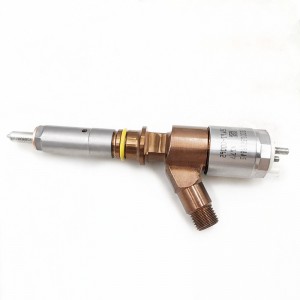New High Quality Diesel Injector 2W-5201 6I-4357 7C-9576 7W-2269 0R-3252 0R-1759 For CAT C3500
Products Description
| Reference. Codes | C3500 |
| Application | C3500 |
| MOQ | 4PCS |
| Certification | ISO9001 |
| Place of Origin | China |
| Packaging | Neutral packing |
| Quality Control | 100% tested before shipment |
| Lead time | 7~10 working days |
| Payment | T/T, L/C, Paypal, Western Union, MoneyGram or as your requirement |
How does the pressure control mechanism of a diesel injector work?
There are two main types of pressure control mechanisms for diesel fuel injectors: mechanical pressure regulating type and electronic control type. The following is their working principle:
Mechanical pressure regulating type pressure control mechanism
This mechanism mainly sets the injection pressure through the pressure regulating spring. When working, after the fuel enters the injector, it will generate an upward pressure on the needle valve. When the fuel pressure is less than the preload of the pressure regulating spring, the needle valve is pressed on the valve seat by the spring, the spray hole is closed, and the fuel cannot be sprayed out.
As the fuel pressure continues to increase, when the fuel pressure is greater than the preload of the pressure regulating spring, the fuel pressure overcomes the spring force, pushes the needle valve upward, the spray hole opens, and the fuel begins to spray. During the injection process, the fuel pressure will be maintained at a level that just overcomes the spring preload, thereby achieving control of the injection pressure.
Electronic control type pressure control mechanism (taking the common rail system as an example)
Pressure establishment: The high-pressure oil pump pressurizes the fuel and delivers it to the common rail pipe, so that the fuel pressure in the common rail pipe increases to the set value, which can generally reach 100-200MPa or more.
Solenoid valve control: The ECU (electronic control unit) sends an electrical signal to the solenoid valve of the injector according to the engine's speed, load and other operating parameters. When fuel injection is required, the ECU controls the solenoid valve to open. After the solenoid valve opens, the control chamber on the upper part of the needle valve is connected to the oil return channel, and the oil pressure in the control chamber drops rapidly.
Needle valve opens for fuel injection: Due to the decrease in oil pressure in the control chamber, the needle valve is lifted upward under the action of the lower fuel pressure, and the fuel is injected into the combustion chamber through the spray hole. At this time, the injection pressure depends on the fuel pressure in the common rail pipe and the opening degree of the needle valve, and the opening degree of the needle valve is determined by the opening time and opening speed of the solenoid valve.
End of fuel injection: When the ECU controls the solenoid valve to close, the control chamber is cut off from the oil return channel, and the oil pressure in the control chamber gradually increases. Under the joint action of oil pressure and spring force, the needle valve gradually seats, the spray hole closes, and the fuel injection ends. By accurately controlling the opening time and frequency of the solenoid valve, the ECU can accurately control the injection pressure, injection amount and injection timing of the injector to meet different engine operating conditions.
In some large diesel engines, such as the marine Wärtsilä EFI main engine, the fuel pressure control valve (PCV) is also a complex form of pressure control mechanism. It uses the main piston and valve core and other components to control the opening and closing of the valve core based on the comparison between the fuel rail pressure and the set pressure, and uses the balance of lubricating oil pressure and fuel pressure to adjust the fuel pressure in the fuel rail. When the fuel rail pressure exceeds the set pressure, the main piston moves upward, the valve core seat opens, and the excess pressure is released; when the fuel rail pressure is lower than the set pressure, the main piston moves downward, the valve core seat closes, and the fuel rail pressure increases.























